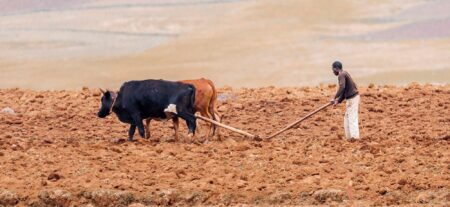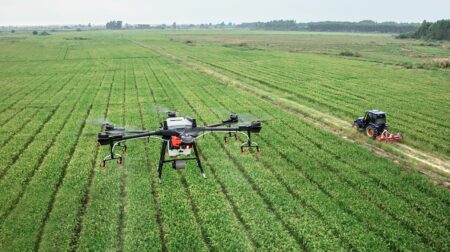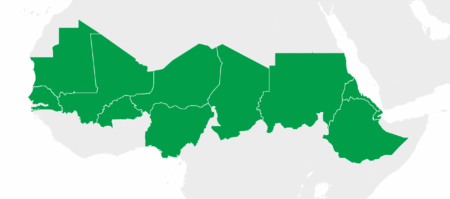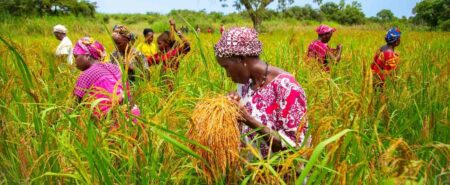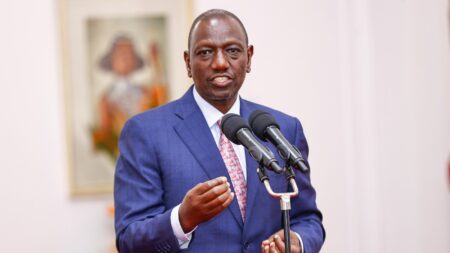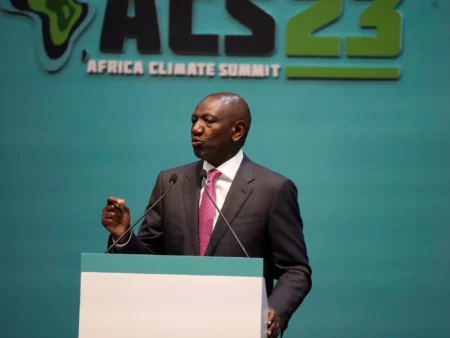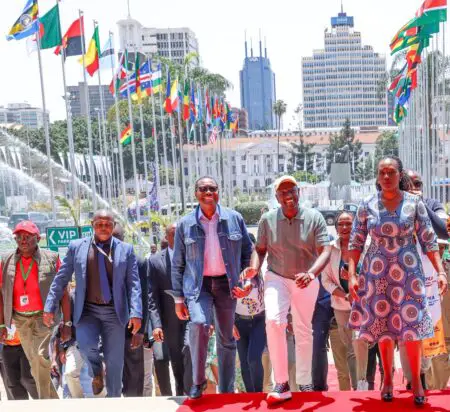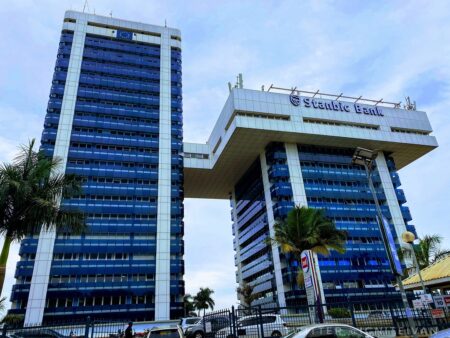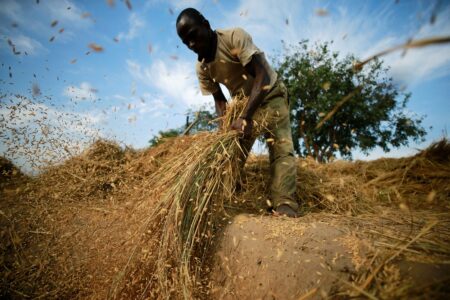- Africa’s new dawn: the rising role of digital and AI in agriculture
- Can Dangote Refinery Transform Africa Energy Ambition
- Gallup Survey: 80 per cent of Kenyan Workers Are Disengaged and Seek New Opportunities
- Madagascar Man Freed from 5KG Tumor After 15-Year Struggle
- How women in Africa are perceived and treated
- Sugar consumption in Kenya to Increase to 1.23 Million Tonnes
- Can Somalia and Turkey Oil deal Bring Change in Somaliland
- Remittances to Kenya dropped to $371.6 million in June, marking a six month low
Browsing: Food Security
- Food security in Africa has been elusive due to unpredictable weather and slow adoption of technology
- The first is research from the Food and Agriculture Organisation which highlights the priority areas for production of cereals in Africa
- Although Africa’s population has doubled in the last 30 years, food production has not kept pace with yields often below the global average.
According to research released by Oxfam in 2023, seven people across Ethiopia, Kenya, Somalia and South Sudan will die of hunger-related causes in the time it takes the average reader to complete this article.
It is imperative that all stakeholders in the food and agriculture sectors recognise that there can no longer be a “business as usual” approach. Something has to change, and quickly.
SOS Sahel’s Africa Days Forum taking place on 27th and 28th June 2024 in Senegal will this year is focused on “Lost Crops, New Opportunities: …
Africa’s agritech potential is immense. Agriculture can help solve various issues, including food security, poverty reduction, and economic transformation. However, technology is needed to revolutionise agriculture and solve farming and agricultural challenges.…
- Agriculture is one of the leading causes of climate change.
- Without action, emissions from food systems will rise even further, with increasing food production.
- Climate-smart agriculture offers a holistic approach to end food security.
It may surprise many that agriculture and its activities are, in fact, one of the leading causes of climate change. Agriculture is reported to be responsible for some of the highest emissions of greenhouse gases, making the sector one of the main contributors to global warming.
It strikes the environment with a double-edged sword, emitting greenhouse gases on one hand and destroying forests and marine ecosystems on the other.
According to the World Bank, agriculture is the primary cause of deforestation, threatening pristine ecosystems such as the Amazon and the Congo Basin. With the global population exploding, there is an inevitable need to increase food production, which can only be achieved by expanding agricultural activities.
This …
- The African Development Bank has donated $20 million to Senegal to enhance food security and support small producers post-COVID through the PRESAN-PC project.
- Infrastructure development, including agricultural boreholes and solar-powered systems, aims to increase farm production and resilience to climate change.
- The project benefits vulnerable women and youth, includes contributions from various sources, and impacts 31,000 households across multiple Senegalese regions.
In an ambitious move to ensure food security and enhance the livelihoods of its small producers, Senegal has received a significant financial boost. On a notable day in March 2024, the African Development Bank Group allocated a $20 million donation to the nation for the Post-Covid Food and Nutrition Security Enhancement Project (PRESAN-PC).
The initiative aims to transform Senegal’s agricultural landscape, benefiting vulnerable women and young people through increased farm production and income.
African Development Bank’s $20 million donation to Senegal
The African Development Bank’s generous donation comes from …
- Since ascending to office in September 2022, President Ruto has remained relentless in his bid to boost Kenya’s agricultural productivity.
- Agriculture remains the bedrock of the country’s development and the key to creating equitable and sustainable growth for its citizens.
- President Ruto has focused on implementing policies and programs to enhance productivity, improve farmers’ incomes, and ensure food security.
Agriculture as a bedrock of Kenya’s economic prosperity
Kenya has made impressive economic strides in innovation and entrepreneurship, private sector enterprise, infrastructure, and human skills development. However, agriculture remains the bedrock of the country’s development and the key to creating equitable and sustainable growth for its citizens. The importance of agriculture has been highlighted in Kenya’s Vision 2030
Moreover, research has demonstrated that agriculture remains a major driver of economic prosperity for most African countries. In addition to driving economic growth, agriculture creates jobs for most rural communities and is essential …
In recent years, Africa has gained increasing attention in the climate change dialogue, especially its role in the global carbon offset market. But what exactly does this mean for the continent and the world? This article delves into the concept of carbon offsets in Africa, explores the benefits, assesses Africa’s contribution to global emissions, and examines the leading countries in carbon trading.…
A considerable gap exists between symbol and substance regarding an African climate change approach. Foreign leaders often nod to how Africa accounts for only four per cent of global emissions but bears the brunt of the devastating climate change effects. Rising temperatures, extreme weather conditions, and ecosystem disruptions threaten millions of Africans’ livelihoods.
For many communities across the continent, the climate threat is already existential. With 18 per cent of the global population, Africa has 16 of the 20 countries most vulnerable to climate change, according to Notre Dame Global Adaptation Initiative.…
Kenya has bagged three green investment deals at the recently concluded Africa Climate Summit. The sustainable trade investment deals will see the East African nation partner with Sweden, South Africa and Hong Kong to enhance food security and air travel in the country. The parties involved announced the three deals during a sideline event of the 2023 Africa climate summit in Nairobi.…
- For millions of households in Uganda, remittances play a vital role in safeguarding food security, healthcare, savings and investment opportunities.
- IFAD data shows 75% of money sent to Uganda is used to fight poverty and improve access to nutrition, health, housing and education.
- The remaining 25 percent is used to support small businesses and facilitate access to financial products.
The UN’s International Fund for Agricultural Development (IFAD) has partnered with Stanbic Bank Uganda (SBU) in a plan to reduce the cost incurred by Ugandans sending money back home by half through a digital payment platform dubbed FlexiPay.
The partnership will also provide remittance recipients, especially in rural areas, with digital and financial training to promote the savings culture and foster digital finance uptake among these communities.
Cost of remittances in Uganda
At the moment, the average cost of sending money back home for Uganda’s migrant workers is 11.3 per cent, …
- One in five people in Africa suffers from hunger.
- With the rising population, action is necessary to ensure access to healthy and sufficient food.
- AfCFTA can serve as a strong incentive for farmers and other participants in agri-food value chain.
Africa’s population is expected to hit two billion by 2050 yet her food security systems remain a fleeting mirage largely due to delayed financial commitments. Granted, in the past two decades, most African governments have placed great emphasis on transforming their food systems but it progress has been rather slow.
Financing of food systems
Currently one in five people in Africa suffers from hunger. And with a population of 1.1 billion people, it is imperative to take immediate action to ensure access to healthy and sufficient food by 2050. So how will Africa achieve this momentous goal? Experts say all the moving parts are in place, all except one, the …





